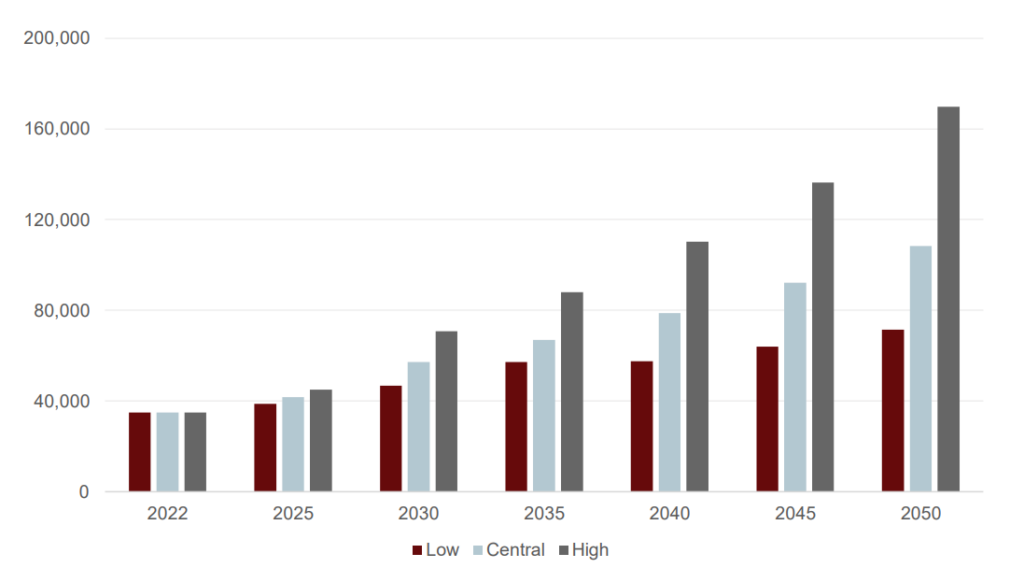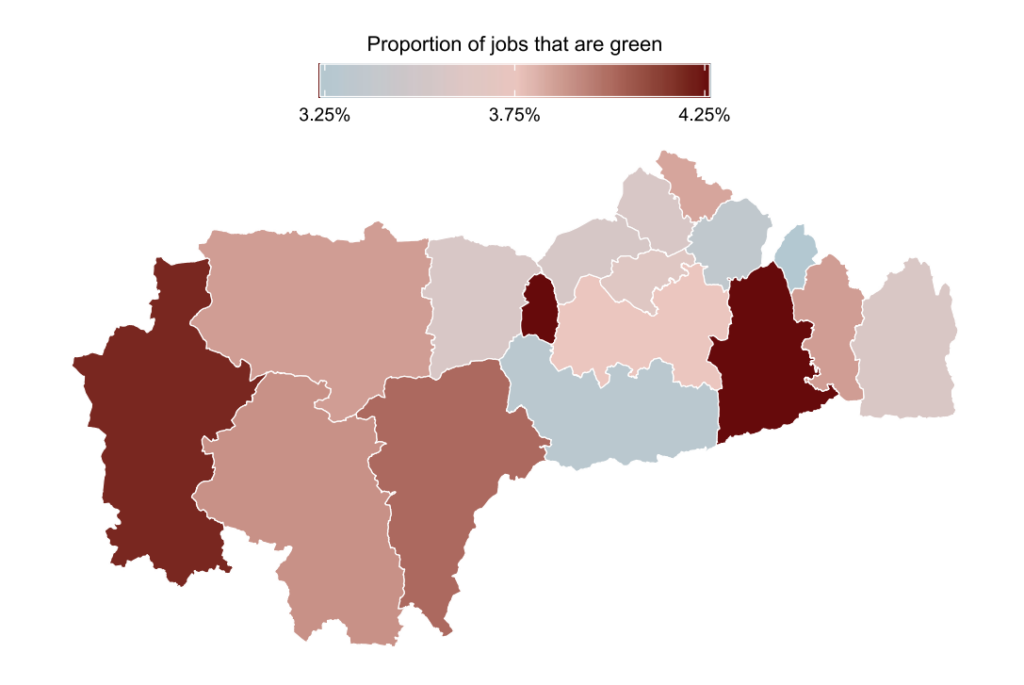The Data City’s real-time classification data and Lightcast‘s jobs and skills data has been utilised by WPI Economics to shed light on the current state of the green economy in the LSIP area (Surrey and North/ Mid Hampshire). The findings reveal a solid foundation and promising trajectory for these regions, highlighting opportunities for growth and environmental advancement leading up to 2030.
As we have discussed before, mapping local authorities’ green economies is crucial for understanding the current state of green jobs, as well as providing direction for further development.

Partnering with Lightcast and WPI Economics to map Surrey and North/Mid Hampshire
You might have already read about our partnership with Lightcast and WPI Economics, but if you haven’t then here is a very brief rundown.
To support public sector organisations in uncovering their hidden potential, a partnership between The Data City, WPI Economics and Lightcast offers data and insights to help understand and navigate the local green economy. This includes identifying green job opportunities, analysing sector changes, and addressing skills implications through workshops and policy recommendations.
Key Findings
The LSIP area currently has an impressive green economy, with room for improvement in the future. The highest growth rate of around 6% per year is expected in the years leading up to 2030. This surpasses the growth rate of the digital sector between 2009 – 2019 (about 4%).

Currently, the LSIP area shows a strong presence of green employment. There is a 3.8% concentration of green jobs, which is 0.8% higher than the national average of 3%. In particular, strengths show in the Reduce, Reuse, Recycle and Repair; Homes and Buildings; Climate Adaptation; Low Carbon Transport; and Natural Environment areas relative to the rest of the Southeast region, among others. The full list of sectoral strengths can be found in the report.

Looking to the future, the green economy must grow stronger, which will require support. The importance of specialised green courses cannot be understated, specifically there must be an emphasis in the uptake of engineering courses in order to meet the demand for engineering roles in the green economy’s future.
Get this analysis for your own local authority
We’ve recently launched the green economy package with WPI Economics and Lightcast. This package will provide similar insights to those you can see in the LSIP report, but tailored to be bespoke for you.
Make sure to read our full article on it, but here’s a brief list of what you can expect from the package:
- Companies currently active in the green economy in your local area
- Green economy growth and trajectory in your area
- Which sectors of the economy will see substantial changes due to decarbonisation
- What this means for skills and employment policy:
- Green policy areas likely to have the best future opportunities for residents
- Green policy areas that could be held back by skills shortages
Have any questions about the report or our partnerships? Or simply want to learn more? Reach out to us and we’ll be happy to discuss.